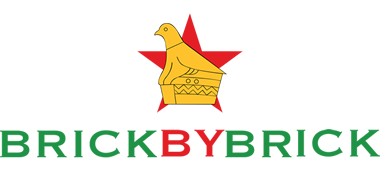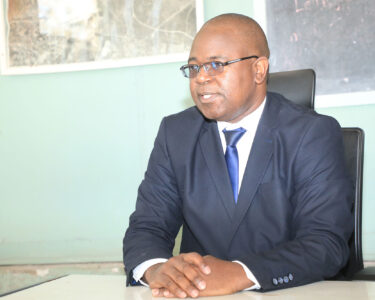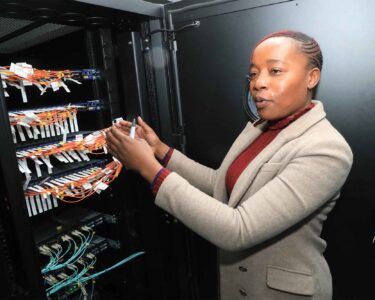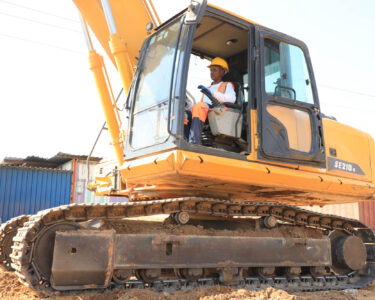Harare will soon regain its shine, says Muguti
- Reads riot act to land barons
- Warns errant ‘City Fathers’
The Second Republic, under the leadership of His Excellency Dr Emmerson Dambudzo Mnangagwa, has adopted a developmental thrust that has seen economic power and decision-making being devolved from central to provincial governments. Harare Metropolitan Province, with a population of close to two-and-half million, the same as either Namibia or Botswana, is the largest economy of the country’s 10 provinces.
In this wide-ranging and eye-opening interview, Editor-in-Chief Munyaradzi Huni and Senior Correspondent Garikai Mazara sat down with its Secretary for Provincial Affairs and Devolution, Tafadzwa Muguti, to find out why Harare has a special place in Zimbabwe’s economy, how the province is addressing its myriad of challenges, or if the city will ever regain its Sunshine City status. According to Muguti’s well-articulated responses, Zimbabwe’ capital city is in safe hands and doing its bit to work towards the vision of an upper middle income society by 2030. Read on . . .
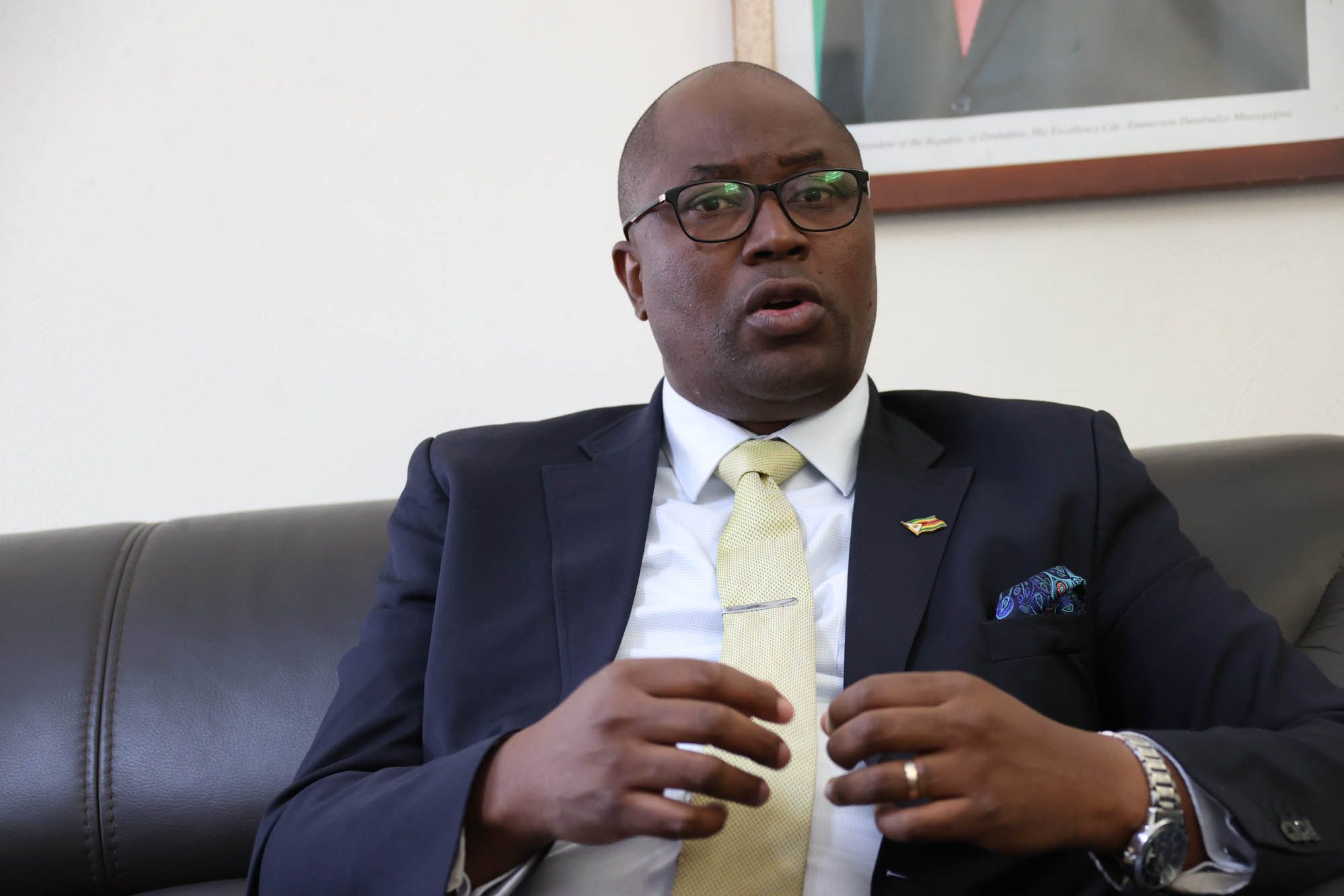
in the last quarter of 2021, we had a provincial GDP of 24,1%, which I
strongly believe is a gross underestimate. It is not a true reflection of Harare’s
economic status because it is based on a top-bottom approach. Given the
informal nature of our economy, we would prefer a bottom-up approach, and
this is something we are working on in conjunction with the United Nations
Economic Commission for Africa (Uneca)”
Q: What is the general overview of Harare Province in terms of population size, geographical area and Gross Domestic Product (GDP)?
A: Essentially, there are just over 2,4 million people in Harare Metropolitan Province or, to be more precise, 2,472,231 people, according to the 2022 census, making us the biggest province in terms of population. Geographically, the province covers a land area of approximately 872 square kilometres, which includes four metropolitan local authorities, these being Harare and Chitungwiza municipalities as well as Ruwa and Epworth local boards.
Before the advent of devolution, Harare accounted for 60% of the national GDP. This was because most industries had not disaggregated their statistics as everything was lumped together in one big pot. But now we have got to a stage where we must determine where Harare’s economy stands in the hierarchy of things. In fact, this is in line with the demands of devolution which requires each of the country’s 10 provinces to leverage on their respective resources to grow the economy.
So, in the last quarter of 2021, we had a provincial GDP of 24,1%, which I strongly believe is a gross underestimate. It is not a true reflection of Harare’s economic status because it is based on a top-bottom approach. Given the informal nature of our economy, we would prefer a bottom-up approach, and this is something we are working on in conjunction with the United Nations Economic Commission for Africa (Uneca).
Don’t forget that the national GDP statistics are computed using the top-bottom approach as opposed to the bottom-up approach. Although it is the standard throughout most of the developing world, I don’t agree with it. I don’t agree with it for the simple reason that up to 70% of developing countries’ economic activities take place in the informal sector. Take small to medium scale industries (SMEs) for example; they don’t believe in banking their proceeds. All their transactions are strictly on a cash basis. Cheques, point of sale devices or mobile money are only reserved for business transactions involving the formal sector.
We are not only seeking to formalise the informal sector but actively encouraging them to be compliant with the country’s laws which require businesses to subject themselves to surveillance by statutory bodies such as Zimbabwe National Statistics Agency (ZimStat) and the Zimbabwe Revenue Authority (Zimra), etc.
We are also doing our own provincial fiscal performance analysis to augment ZimStat. For example, when raw materials produced in, say, Mashonaland Central are value-added in Harare, all we are interested in is the labour component performed in Harare. Even if it’s diamonds, we do not want to be seen claiming a share of the revenue, which rightly belongs to the province of origin.
Q: The country has 10 provinces, what would you say makes Harare Metropolitan Province stand out from the rest?
A: Harare is the financial, commercial, information and communication technology and manufacturing services hub of the country. As many as 80% of the close to 300 micro-finance institutions are found in Harare. Not only that, Harare Metropolitan Province is home to the country’s largest population, almost as big or bigger than Namibia or Botswana.
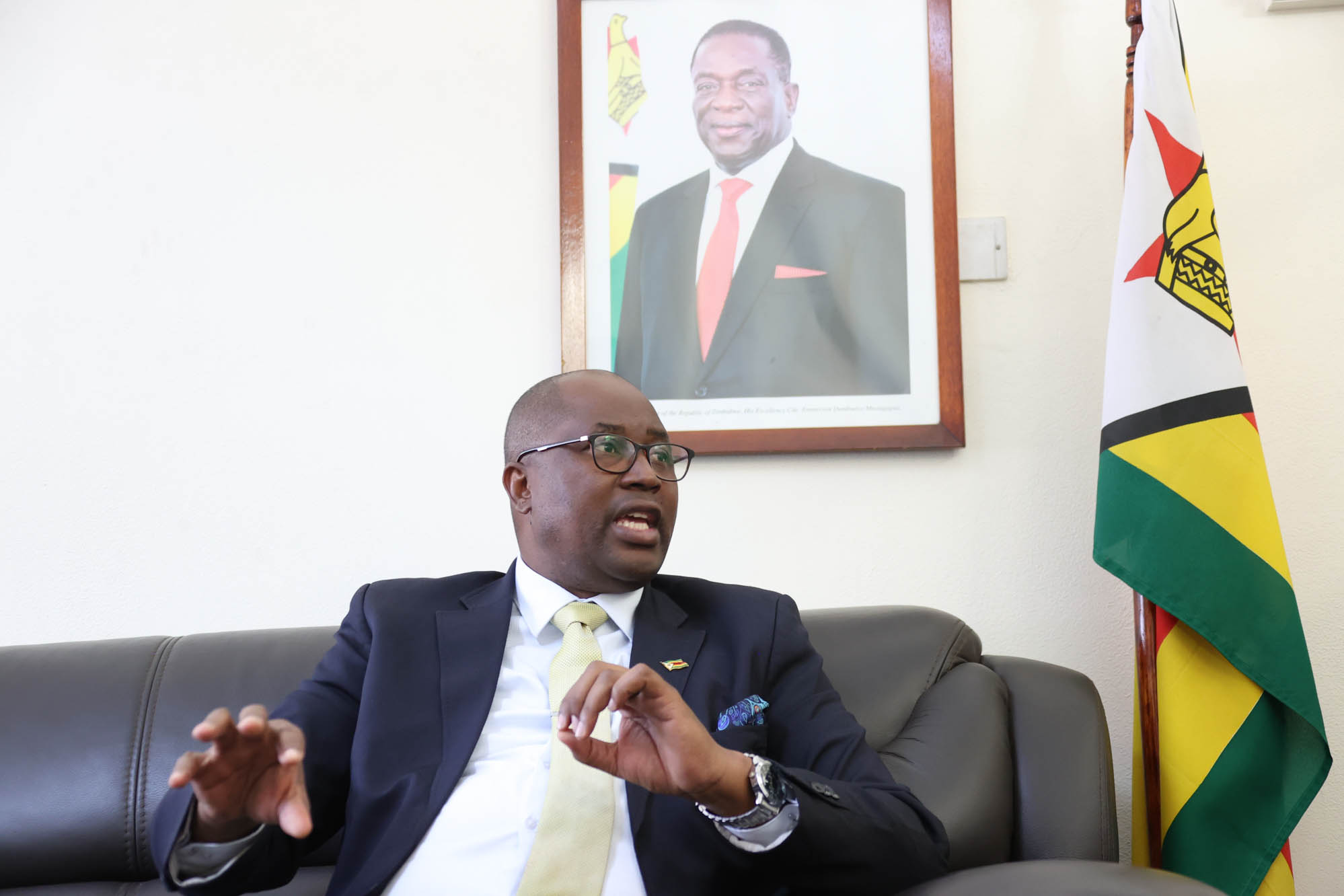
It also plays host to the Presidium. All foreign diplomatic missions are domiciled here.
Harare is centrally located, not only in Zimbabwe, but in the Sadc region and is well connected by road, rail and air. Any company wishing to invest in Harare can easily access the export market by road, rail or air.
Zimbabwe’s economy is built mainly on agricultural and mining activities and Harare province boasts processing and manufacturing industries which draw their raw materials from the other nine provinces. On human capital development, we have some of the best universities, technical, vocational colleges, primary and secondary schools as well as modern health facilities manned by highly skilled personnel.
Harare supports many other provinces as well. By day, we have a population of over 4 million because we host commercial activities for neighbouring provinces like Mashonaland East, West and Central, which we trade with on a daily basis.
That means about 1.6 million people come to Harare for commercial activities during the day and this should give you some idea of the level of economic activity within Harare.
Q: Given this background, what are some of the high-impact, stand-out developmental projects that have been undertaken in the province by the Second Republic in the past five years?
A: One stroke of genius by His Excellency, Dr Emmerson Dambudzo Mnangagwa, has been to declare a state of emergency on our roads. No economy can function without a good road network. Remember, where there is no trafficability, there is no economic activity.
For the last quarter of a century, our roads had been reduced to a sorry state. But things are looking up with the advent of the Second Republic. Through the Emergency Road Rehabilitation Programme 2 (ERRP2), we are targeting the major roads, i.e., those used for the transport of commuters, goods and services.
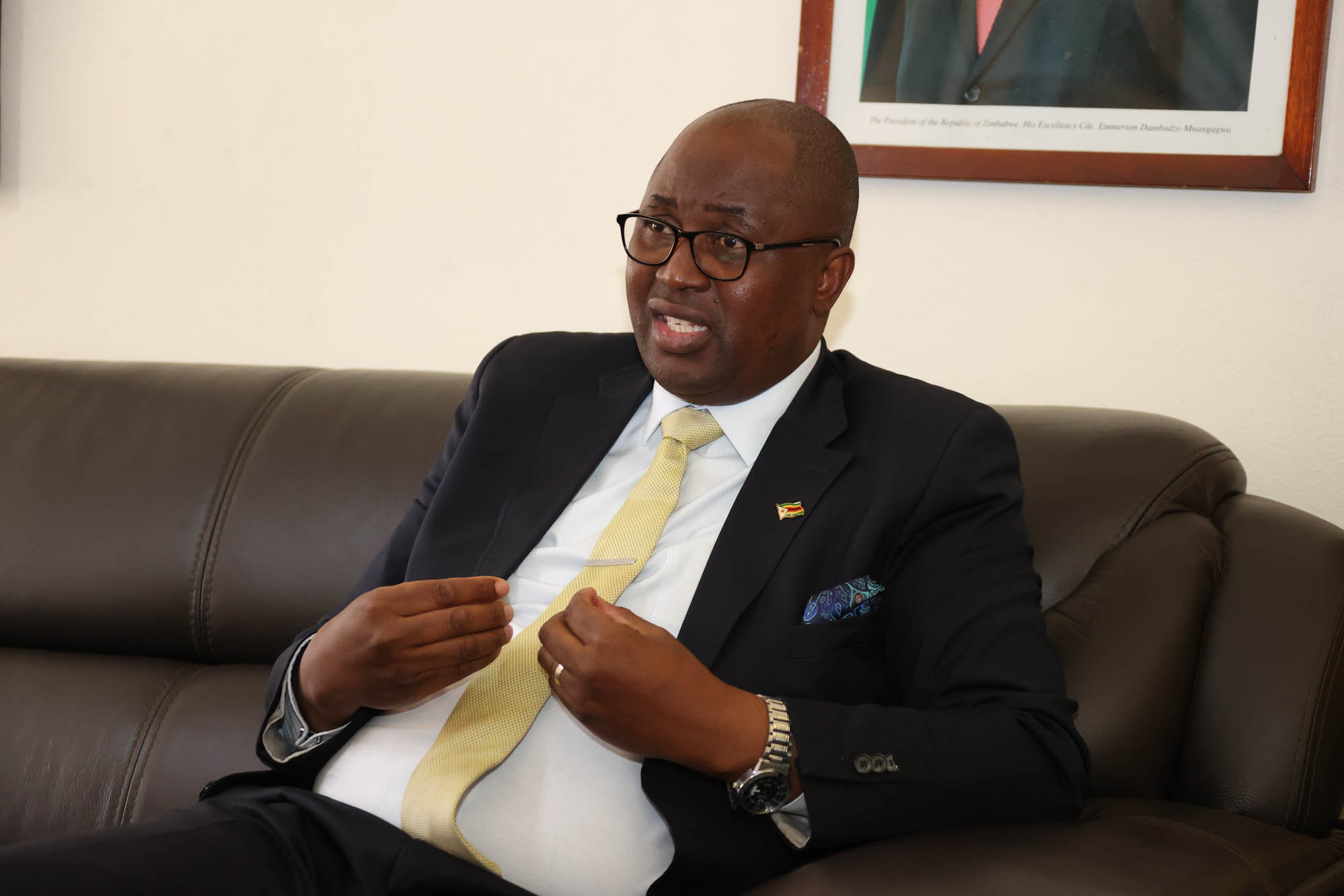
One of the major projects that we are undertaking is the Mbudzi Interchange. This is a major project because Harare is the gateway to Malawi, the Democratic Republic of Congo (DRC) and Zambia, not to mention Botswana. There is no way you can measure the impact of the Beitbridge-Chirundu Highway without factoring in Harare.
The modernisation of the Harare-Mutare Highway, especially the stretch leading up to Ruwa, has also paid huge dividends in terms of reducing traffic congestion at peak hours.
Because Harare is a major food processing hub, it requires a consistent and reliable supply of water. So we have used devolution funds to increase our capacity from slightly over 100 megalitres to over 350 megalitres of water per day.
Most of our industries are now getting water and we have been supporting the City of Harare with devolution funds. They have managed to upgrade most of the infrastructure at Morton Jaffray Waterworks. There was a time when water shortages were the order of the day in Harare’s Central Business District (CBD). But if you go to any part of the CBD right now, water is available on tap 24/7. I think that has been a great achievement.
Q: Talking of high-impact projects, how significant is the Robert Gabriel Mugabe International Airport, in terms of Harare Metropolitan Province’s development agenda?
A: I would like to believe until its recent refurbishment, Robert Gabriel Mugabe International Airport was one the best airports in the Sadc region. But being second, third or fourth is not good enough. And since we are aiming for an upper-middle economy by 2030 we had no option but to expand it. At least US$153 million was spent on the airport upgrade, and I believe the expenditure was worth it.
We have 12 flights into Harare at any given time and the last thing we want is for passengers to be frustrated, queueing to go through immigration or waiting for their luggage. There is also need for RGM International Airport to cater for passengers in transit. As things stand, the majority of the world’s major airlines currently prefer OR International Airport (South Africa) or Lusaka International Airport (Zambia) as their transit stops. But there is no reason why Qatar Airways flights cannot stop over in Harare on their way either to South Africa or Botswana, and vice versa.
The refurbished airport gives us the opportunity to be a Special Economic Zone, because it is going to attract much more domestic and international traffic. Let us not forget that this latest upgrade is just the beginning of even better things to come. The next phase is to improve the cargo handling side as well as increasing the number of runways. This is why we do not wish new housing schemes mushrooming in the vicinity of the airport.
Q: Harare has faced a number of challenges, especially to do with water and sewage. What are you doing to address these challenges?
A: I think the water challenges in Harare have to be addressed in three stages: the short, medium and long term. In the short term, we have managed to replace the water pumping infrastructure. With the help of devolution funds, the City of Harare, has succeeded in installing new water pumps making it possible to pump water into Warren Control for distribution to various residential and commercial areas like Letombo, Graniteside, etc.
The short to medium term phase involves water reticulation. As will probably be aware, Harare’s water infrastructure dates back to the 1950s and 1960s. This is very old infrastructure by any standards, and this explains some of the water challenges in Harare North and Harare East. We cannot pump water to Greendale, for example, because the pipes have been eaten away by rust, and thus need to be replaced.
Don’t forget, too, that we have communities that have expanded by more than 1,000% since the 1960s, which means the water and sewerage infrastructure needs to be upgraded. During the initial planning stages, Ruwa, Epworth and Chitungwiza did not exist.
In the long term, our goal is to build two new dams — Kunzvi and Muda. The procurement stages for Kunzvi Dam are complete, and construction works are due to kick-start in the foreseeable future. When complete, water challenges in Harare North and East will be a thing of the past. On the other hand, the proposed Muda Dam is expected to supply water to Harare South and Harare West. The dam will cost over US$300 million and we are in talks with potential investors.
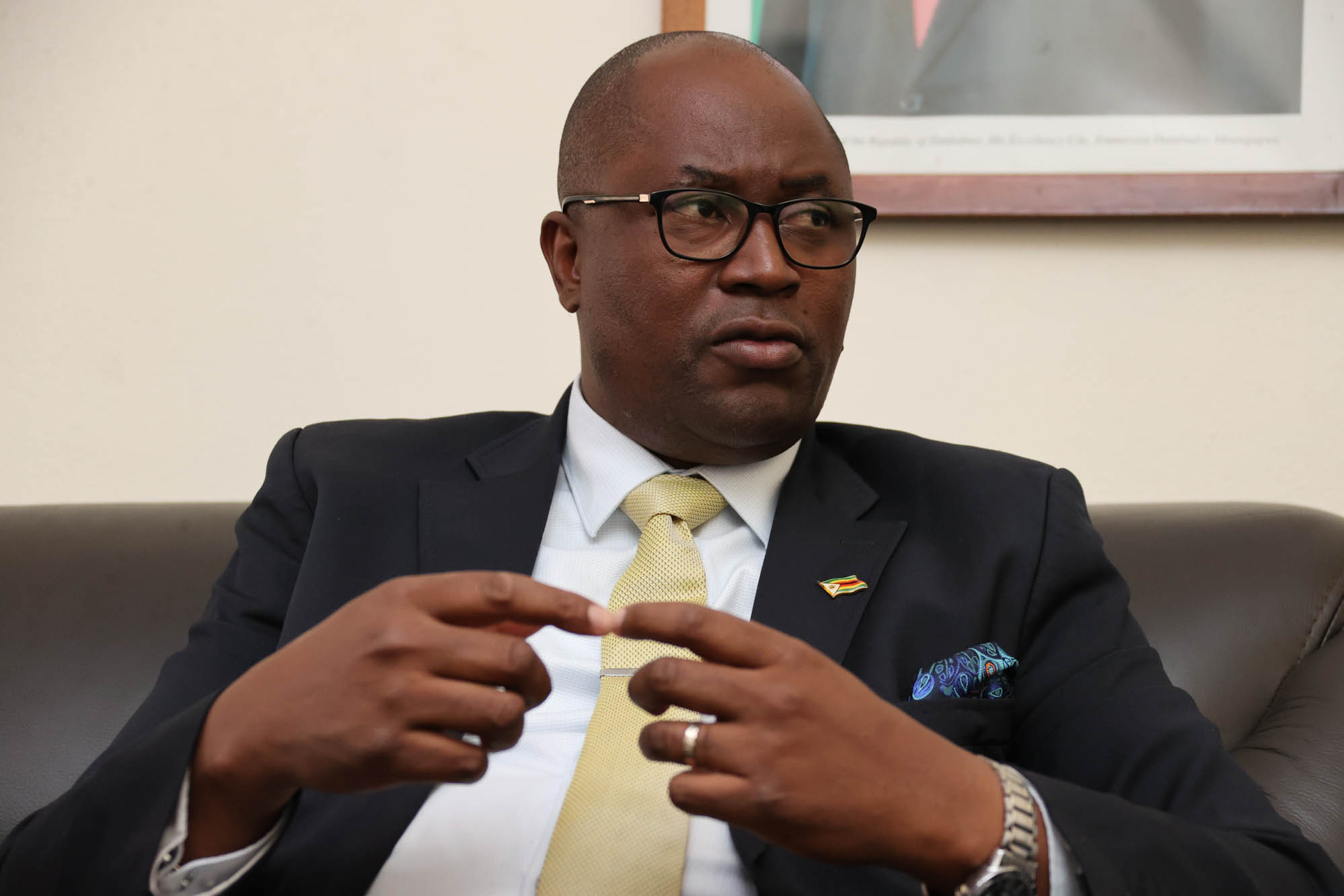
There are also long-term plans to build a canal from Muchekeranwa Dam [in Macheke] to Nora Valley in Ruwa which will be extended to Mabvuku, Tafara and Epworth. There are also tentative plans to desilt Harava Dam or expanding it to supply water to Chitungwiza. Obviously, we cannot do everything overnight, hence the need to look well ahead into the future.
There are also issues to do with Darwendale Dam. Did you know that Norton gets its water from Harare? Norton is not even part of Harare Metropolitan Province; it is in Mashonaland West, and the long-term plan is to wean off the dormitory down. We are waiting to hear from the Mashonaland West provincial authorities regarding their plans for Norton’s water supply. However, there are reports of poor waste management at Darwendale Dam. If the waste water management issues are addressed, there is no reason why Norton should in future not get its water from Darwendale Dam, thereby reducing the burden on Harare.
Q: People in Mbare, those who see raw sewage flowing every day, are worried about their health. When should they expect to see a change in their situation?
A: Mbare, Makokoba and Sakubva are part of the government’s Urban Renewal Programme. In Sakubva the Government is already demolishing the old infrastructure and relocating people into apartments. There are similar plans for Mbare. But Mbare is more complicated than Sakubva because it is more than just a suburb, but a commercial hub as well.` So unlike, Sakubva or Makokoba, we have to build commercial infrastructure as well as residential infrastructure for Mbare residents.
The infrastructure in Mbare was built to accommodate not more than 10,000 residents, but more than 500,000 people are now living there. The majority of the original 10,000 residents were migrant workers, so to speak, and not permanent residents. It was more like transit accommodation, but today we have up to something like six families crammed into a single flat.
As long as there is no new residential infrastructure in Mbare, we cannot talk about addressing the sewage challenges.
His Excellency has plans for a major housing development scheme, but this was scuttled by land barons. That is why we keep on saying that in the absence of discipline in urban planning there will continue to be piecemeal development in Harare Metropolitan Province.
His Excellency has approved the plan and so has Cabinet. We are waiting for [urban renewal in] Mbare to kick off any time. Once again, Harare City Council has to join hands with a local partner under a Triple P [Public-Private Partnership] to implement the project. I believe most of the delays are to do with the City of Harare because, for the past three years, they have paid lip service to plans to calls for urban renewal.
The ball is, therefore, in the Harare City Council’s court. Let me point out that under devolution, the metropolitan council has no mandate to approve plans for local government structures.
Q: Secretary, earlier on we discussed roads and the Emergency Road Rehabilitation Programme (ERRP). If you look at the roads in the suburbs, most of them are in bad shape. Are these roads ever going to be repaired?
A: It is the responsibility of city councils to maintain those roads, considering the parking fees and road levies they are collecting. If you take the Borrowdale District, for example; its residents contribute the highest in terms of rates and taxes, but the state of their roads leaves a lot to be desired. It, therefore, does not make sense for the Government to allocate funds from the Treasury for the purposes of fixing something that is already being paid for by ratepayers.
Local authorities must ring-fence those taxes for service delivery. When you see us fixing those roads, it means councils are sleeping on the job. The Government and its various partners have adopted some of those roads and our focus is the State roads. By and large, our priority right now is decongestion and trafficability of State roads to boost the country’s economic development.
Q: Talking of congestion and trafficability, it is quite a challenge driving in Harare, especially during peak hours. Are there any plans to decongest the city centre?
A: As you will probably now, it takes two to tango. We need to go back to the basics, social infrastructure and social services remain the prerogative of central government; they cannot be privatised.
The Roads Act, for example makes it clear that there are State roads and local authorities’ roads. In other words, metropolitan council cannot be held accountable for decongesting Harare, because the City of Harare is responsible for the traffic lights, of which only about 40% are in working condition. And of the 40% in working condition, 80% are down at one point or another.
In such situations, the government will come with stop-gap measures, such as asking the Zimbabwe Republic Police (ZRP) to man dysfunctional robot-controlled intersections. As we speak, about 150 police officers are undergoing training in traffic management. But this is contrary to our goal of creating smart cities, under which services should be digitalised.
Then there is the mushikashika menace. That is something that the government, through the ZRP, can’t tackle alone. It calls for a multi-stakeholder approach. For example, if a motor vehicle owner wants to operate a taxi service, it is advisable to apply for the requisite licences and/or permits. But this is not happening, and this problem is a carryover from the First Republic which paid lip service to such rogue elements.
It is almost next to impossible to address congestion and infrastructure development as long as motorists and public transport operators flout traffic regulations willy-nilly. In my opinion, there is an urgent need for a Statutory Instrument to regulate the operation of kombis and mushikashikas.
Q: The phenomenon of illegal settlements has caused lots of headaches for Harare Province and you have come out declaring war against land barons. Are you winning the war?
A: Yes, we are winning the war. When I came into office we had a situation where, if a homeseeker wanted to secure a residential stand, he/she would have to know someone who knew someone who knew someone. The first step was to conscientise home-seekers that it is criminal to build houses on land obtained via the backdoor.
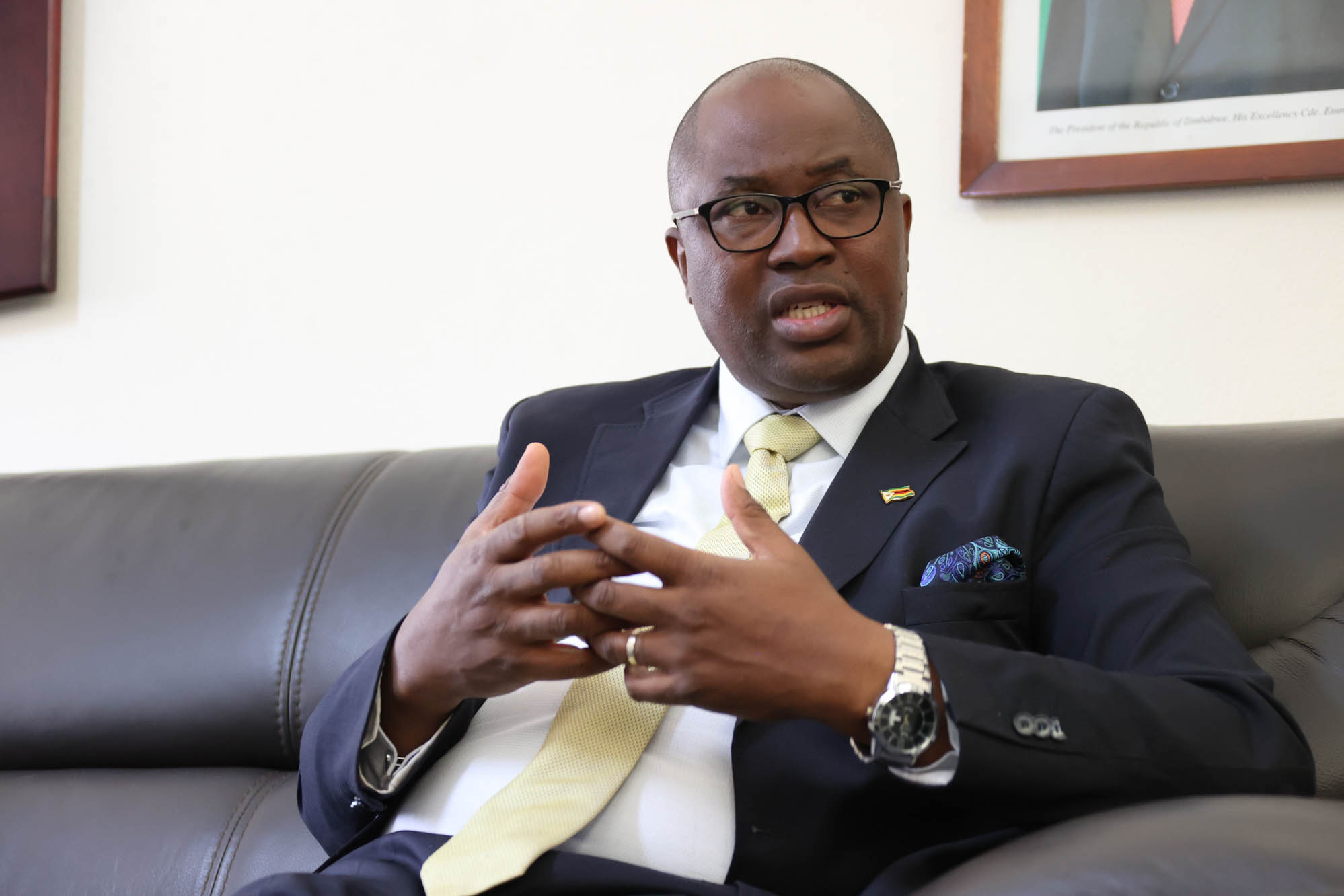
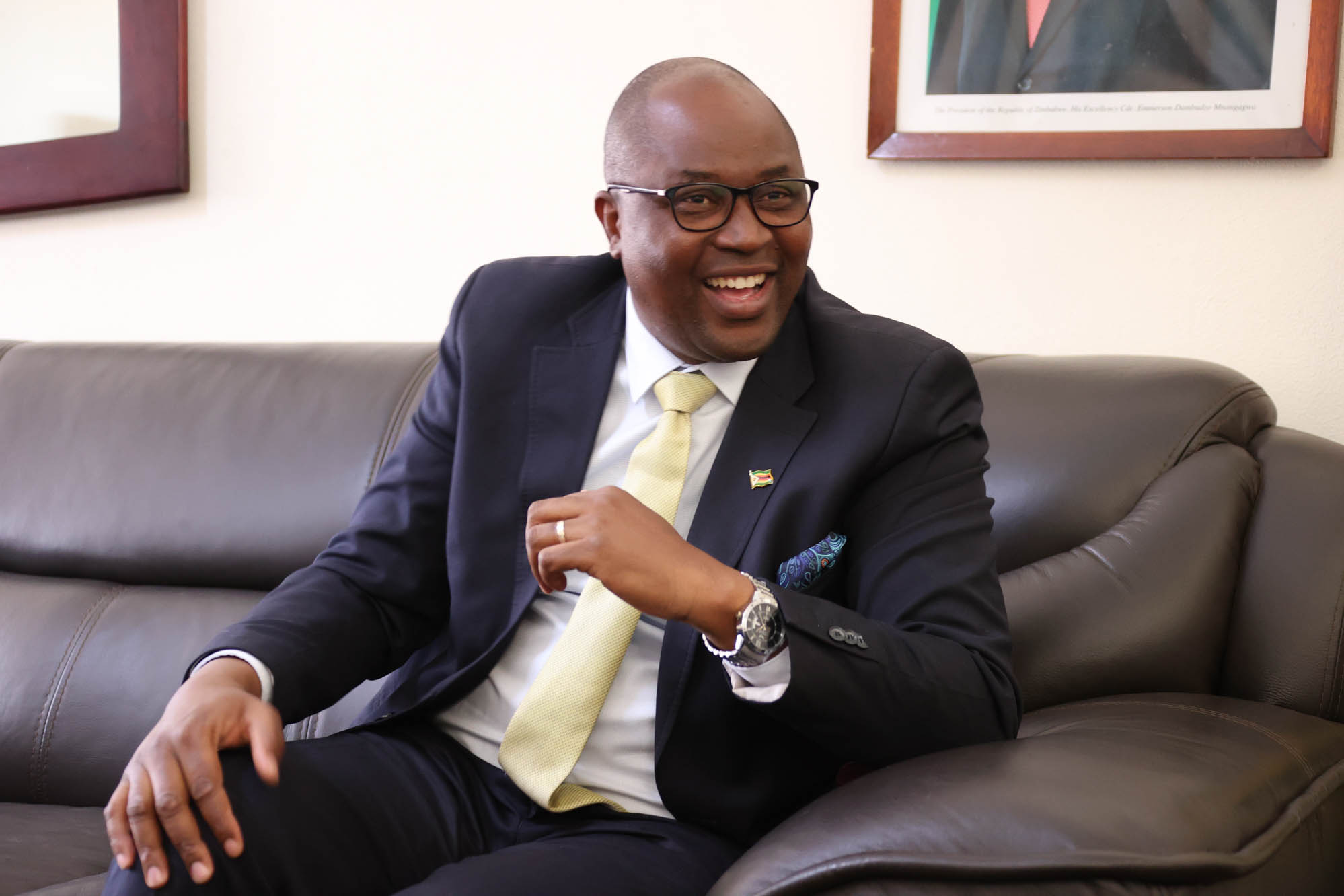
The second step was to clip the wings of the so-called housing co-operatives. We told them in no uncertain terms that they were not local authorities, and as such had no power to allocate land. The only power they had was to oversee developments on land that had already been allocated to their members.
Thirdly, we clamped down on self-styled land barons who survived on name-dropping for their illegal activities. Right now, we don’t have anyone using the President’s name to acquire land.
Fourthly, we also enlisted the services of the law enforcement agents in those land disputes where push came to shove.
Last, but not least, we have put in place advocacy and the awareness programmes. Over the past 25 years, nearly all the country’s major urban centres have experienced significant rural-to-urban migration. The majority of the newcomers are not only unfamiliar with housing by-laws, but are sitting ducks for fraudsters.
Right now, we have 52,600 illegal homes in Harare. The challenge is that these illegal homeowners expect services from the metropolitan local authorities, yet their properties do not exist in our database.
One of the fundamental successes of the Second Republic was to hold local authority officials to account. We have declared zero tolerance to corruption. To date, we have a dossier on 326 corruption cases and more and more barons will soon have their day in court.
Q: Let us talk about drug abuse. This problem is now rampant nationwide, but is quite pronounced in Harare. What are you doing as a provincial government to arrest the scourge?
A: We have done our part, but the corporate sector seems to be dragging its feet in this regard. We have approached the beer brewers, the cigarette manufacturers and owners of nightclubs to chip in through their corporate social responsibility programmes, but to no avail.
There are blue-chip companies making as much as US$5 million profit and they want to be celebrated for providing litter bins, branded with their names, costing, say, US$20 apiece. What we have asked these corporates is to meet us halfway by being unequivocal about under-age drinking.
The Child Protection Act, for example, allows the police to enter any leisure premises to check for under-age imbibers. Regrettably, most of our leisure spots are not compliant. Schools, too, are not doing enough to fight the menace of drug abuse. When pupils take drugs during a school trip, it becomes a criminal offence, meaning that it is something beyond the school’s jurisdiction. But instead of the school authorities referring such cases to the police, they engage in cover-ups [perhaps to protect the school’s reputation].
Nevertheless, as a province, we have done our best to be visible by setting up hotlines and WhatsApp platforms in a bid to educate our youths on the dangers of drug abuse. Our approach is not to arrest offenders, but to enlist their assistance in tracing the source of the drugs, so we can tackle the distribution chain.
In this connection I would to thank the First Lady, Amai Auxillia Mnangagwa, in particular, for initiating a number of community outreach programmes. During her countrywide tours, she has been educating adolescents and parents alike on the need to shun drugs and alcohol.
Q: After 5pm, Harare’s pavements become impassable as vendors jostle for space to sell their wares. Do you think this inspires potential investors to put their money in Harare and what impact is this having on running businesses in the province?
A: It does affect formal businesses. Quite clearly, it is grossly unfair to registered businesses that have paid for their shop licences and are faithfully paying their rates and other taxes to be competing against an informal trader. It is unethical.
As government, we need to do more to get local authorities to appreciate that economic development starts at the very bottom, and not at national level. It is supposed to be bottom-up. That is why we are doing this provincial fiscal analysis with Uneca.
The money set aside for devolution funds is 5% of our Consolidated Revenue Account. In other words, it is 5% of all the money collected and it is shared among the country’s 92 local authorities. What I am saying is our local authorities should not cry for increases in devolution funding when they, in fact, are the biggest barriers to national tax collection
So, the City of Harare, as a local authority, needs to have more people paying rates and other service charges. It means the more informal traders or SMEs pay, the bigger the revenue cake grows, for the benefit of all of us.
I have met with several SMEs and I have explained to them that paying taxes is not voluntary. It is compulsory. Everyone citizen should enjoy what they are paying for, not what someone else is paying for. In other words, someone is paying for the water treatment chemicals for the very water they are drinking; the pavement that they are selling from, someone is paying for cleaning the pavement they are walking on; the and for the road that they are complaining about not having any markings on it.
At the end of the day, we have to educate our SMEs and our vendors that there is a cost to doing business. It cannot be 100% profit.
On the other hand, I am worried about the City of Harare’s staffing levels. It employs well over 6,000 people of whom less than 5% are engaged in enforcing its by-laws. One would expect them to be more vigorous in safeguarding their revenue streams.
Also, remember Harare Metropolitan’s population stands around 2.4 million and growing. This begs the question: Do we have enough social amenities [in the form of market places] to accommodate these people?
We have those open spaces next to the Coca-Cola bottling plant along Seke Road in Graniteside and Shawasha Flats in Mbare. Our local authorities must understand that by developing such vacant spaces into viable markets for informal traders, they will be in a better position boost their revenue streams.
Q: There seems to be constant friction between central government and local authorities, and this is more pronounced in Harare Metropolitan Province. What exactly is the cause of this friction?
A: First and foremost, councillors are there to preserve the integrity of councils, through by-laws, to increase revenue streams and improve service delivery. That, to me, is the simple job of councillors. But the challenge comes when we have councillors who do not appreciate their role as spelt out in the Urban Councils Act, which mandates them to make by-laws which promote the development of communities and societies.
In addition, we have opposition councillors who do not understand one fundamental aspect, that the Legislature is the highest level of law-making in the country. If a law is the product of an Act of Parliament, it cannot be rewritten at local authority level. Thus, all council by-laws are subservient to national laws.
In other words, the city council cannot talk about waste management without reference to the Environmental Management Act. Similarly, they cannot talk about roads without addressing the Roads Act and they cannot talk about water while turning a blind eye to the Water Act. The challenge, therefore, comes when councillors make by-laws which are ultra vires an existing Act of Parliament. We are a unitary state and that is not a matter for debate. Laws passed by Parliament are applicable throughout the country. So no council, rural or urban, can come up with by-laws that are contrary to the main laws.
I think it bears repeating here that occupying a council seat does not mean that you are now a law-maker. Councillors are the overseers of government policy at sub-national level whose job is to ensure that those laws are implemented to the letter.
Q: What then should be done to ensure that officials from central government do not clash with the councilors because the clashes are affecting ratepayers?
A: Government will be tough on councils and local authorities that ride roughshod over government policy. We have been too soft on local authorities. We have councillors who are out on bail who are still at work, we have councillors who were suspended but continue to report for duty. We have local authorities, in this case, the City of Harare, who have not presented audited accounts for four years and yet as government we are perpetually funding them. We cannot continue to pour money down a bottomless pit.
Q: Some of the councillors argue that you are being tough on them because you are a member of the ruling party and they are in the opposition. What is your response?
A: Accountability is blind to political affiliation. May I also add that accountability starts at party level. In the first place, they [opposition councillors] should be able to produce their political party’s accounts for the benefit of their supporters. Zanu-PF does that. Accountability means that, if you have collected money, you must go back to the citizens or ratepayers and explain how or on what the money has been spent.
If you cannot account for the money you have collected or that was disbursed to you by Treasury, it means you have not only failed as a leadership, but also corrupt. With all due respect, going for four years without audited accounts is proof of poor governance and corruption. How can the government assist the City of Harare to fix the roads in Warren Park, for example, when they cannot account for the rates and taxes they have been collecting from Warren Park ratepayers?
If we are going to grow this economy, our local government authorities must show the same accountability that they are demanding from the Presidium and Cabinet. We cannot have a situation where councillors want ministers and MPs to be accountable when they themselves are not.
Q: How much has Harare Metropolitan Province received under devolution and, in your own opinion, do you think the province has benefited from devolution?
A: It has assisted very much because before the advent of devolution by His Excellency, the President of the Republic of Zimbabwe, local authorities were a law unto themselves. Devolution has also helped in the sense that we have 53 ministerial departments and agencies and no one was in a position to ask them if they were performing their duties. But today, when I speak to the citizens, the provincial education director gives his report of what he is doing in the province.
And, for the first time, I am now holding him accountable for things like the schools’ pass rates, which did not happen before. Harare Metropolitan Province did not have a provincial medical director. Now, we have a provincial medical director, who is taking our provincial hospitals and clinics to task, on behalf of the Minister of Health and Child Care.
However, there is need to understand that devolution is the result of decentralisation, not the other way round. Decentralisation does not apply to central government alone, but to all government structures throughout the length and breadth of the country. For example, central government has devolved to provincial level, provincial government to district level and the local government to administrative districts.
At local government level, it means a resident in Highfield should not have to travel long distances to pay their rates at Rowan Martin Building, neither should someone from Seke go to Zengeza. This is what I mean when I say the administrative districts should be decentralised as enshrined in the Constitution. My job as Provincial Secretary now is to ensure that Harare Metropolitan Province has devolved to district level, where district development coordinators are in place. For instance, the City of Harare has 26 administrative districts, which means they should be able to deliver efficient services to ratepayers. Devolution is all about bringing services and development to the ratepayers’ doorsteps.
Q: Do you think the people who are supposed to spearhead devolution, either at central government or local authority level, really understand the concept?
A: There is no reason why they should not. After all, His Excellency spelt it out in the Devolution and Decentralisation Policy which he launched on 20 August, 2020. He made it absolutely clear that every ministry and department needs to decentralise. Just like in the private sector, change is a bitter pill to swallow, so you will find that when we started this journey, there was some resistance. But the more we practise it, the more it finds acceptance. There is a growing appreciation that devolution is here to stay and it is not going anywhere. This is because it is a noble concept enshrined in our Constitution.
This is why when the President goes to the provinces, he is welcomed by the Minister of State for Provincial and Devolution Affairs. Fortunately, His Excellency the President chairs the committee on devolution. If any civil servant or councillor has any problems with the concept, then he/she must seek guidance from His Excellency.
Q: Is Harare Metropolitan Province attracting the right investment? Or, to put it differently, are you happy with the investment that your province is attracting?
A: Currently, we are attracting investment in commercial and real estate. We have had the Highlands Mall and the Madokero Mall. We are also building another mall in partnership with the National Social Security Authority (NSSA) at Makoni Shopping Centre in Chitungwiza. Basically, we are seeing a lot of investment in housing development.
But I have to say the biggest investments have been in the manufacturing sector because, at the moment, 85% of retail products are being manufactured locally, with Harare accounting for the bulk of that.
Willowvale and Southerton are fast running out of space. Barely five years ago when His Excellency became President and he declared that closed industries were going to reopen, the majority of our people did not believe him. But, to their utter surprise, we have succeeded in attracting enormous investment into the province.
There has been massive investment in terms of tourism infrastructure to the extent that Harare Metropolitan Province now boasts between 4,000 and 5,000 hospitality beds. This is a significant improvement from about half that figure four years ago. And here we talking about the big hitters, and not fringe players [like lodges and backpackers]. If we add the fringe players, the figure can easily go up to 10,000 beds.
Q: As Harare Metropolitan Province, do you have a development plan? What are some of the highlights of this plan?
A: One of the biggest programmes that we have undertaken is the Provincial Business Compliance Programme, which found out that about 2,000 of the businesses surveyed were compliant with Government and local authority laws. By compliance, we mean being in possession of a certificate of incorporation, a bank account and valid licence/permit as well as being registered with statutory authorities such as Zimra and NSSA for tax collection and social security purposes.
We are on a robust drive to increase that number and our target this year is to improve that to around 50%. For example, when we started, there were no less than 428 illegal schools in the province; we have since cut that number down to under a hundred. The majority have been regularised while others have been shut down for failing to meet minimum standards.
Another significant development, from the provincial economic performance side, is the ability to monitor changes in the provincial economy in real time. We are no longer dependent on ZimStats for such statistics. We are now part and parcel of the statistics-gathering machinery; we are right there in the mix of things.
We have also been on a massive drive to ensure that businesses accept the Zimbabwe dollar and that is something that we are putting more resources into.
When it comes to illegal settlements, we are working on a regularisation programme in conjunction with the central government. The mapping of all our informal settlements is done and dusted. That is, we now know where the roads, sewer and water infrastructure are going to be sited. We are moving into phase two, which entails making that information public knowledge to warn the affected households of their possible relocation.
I must commend Harare Metropolitan Province for taking the lead in fighting corruption. For the record, we have both the highest conviction and arrests rate of all the country’s 10 provinces. Our targets are not the political bigwigs, but the so-called small fish because there is no way a politician can be deemed corrupt without a junior official holding the torch for him.
Q: Harare Metropolitan Province has a number of institutions of higher learning, could you be working with them in any way?
A: Harare Metropolitan Province boasts 13 tertiary and higher learning institutions, which we would like to see devolved to provincial level. We cannot have students from Harare Metropolitan Province failing to secure places at the University of Zimbabwe. Our tertiary institutions should accommodate Harare-based students, first and foremost. By the same token, Great Zimbabwe University (GZU) should be able to give preference to students from Masvingo and surrounding areas. If there are additional vacancies, then these provincial universities are free to enrol students from outside their boundaries. This, I think, well compel each province to prioritise their human capital development needs.
Right now, we have over 400 primary schools in Harare, compared to 13 tertiary institutions, which is a drop in the ocean. We need to devolve and when we do that, the university vice chancellors and principals will be able to inject new ideas into the provincial developmental strategy. In the long term, we should do away with this idea of the UZ or Midlands State University (MSU) having satellite campuses in different provinces.
Q: Harare was once called the Sunshine City, do you think it can reclaim that coveted status?
A: We can only get there based on one principle: the Bible talks about Nehemiah going back to rebuild the broken walls of Jerusalem. And the Bible is very clear that there was raw sewage flowing at the gates, and says the roads were broken and that there were people who had been accustomed to that state of decay.
It took one brave man, Nehemiah, to take a sabbatical to fix his home. But then Nehemiah was attacked by those who were used to living under such unhealthy conditions, and wanted the status quo to continue.
I am sure you will see some parallels between the biblical Nehemiah and the modern-day Nehemiah, His Excellency President Emmerson Mnangagwa, who is being accused of interfering when all he is trying to do is clean up the mess that Harare has become.
Nehemiah, on the one hand, had a trowel and a sword on the other. The National Development Strategy 1 (NDS1) is the trowel and the Constitution and laws of this country are the sword. We have to understand that Zimbabwe’s laws are not up for debate; there are there to be enforced.
Our citizens have to be mature, to be in a position to understand situation that if we claim to be a sovereign state, it must be accompanied by sovereign discipline. If the Head of State says that by 2030 we should be an upper-middle income society, that is what is called sovereign discipline and it is reflected in the actions of the central government, and provincial and local government authorities.
It is not the sole responsibility of His Excellency. When we talk about rebuilding the country brick by brick, it starts at the village level, followed by the ward, then the district and provincial levels right up to the national level.

